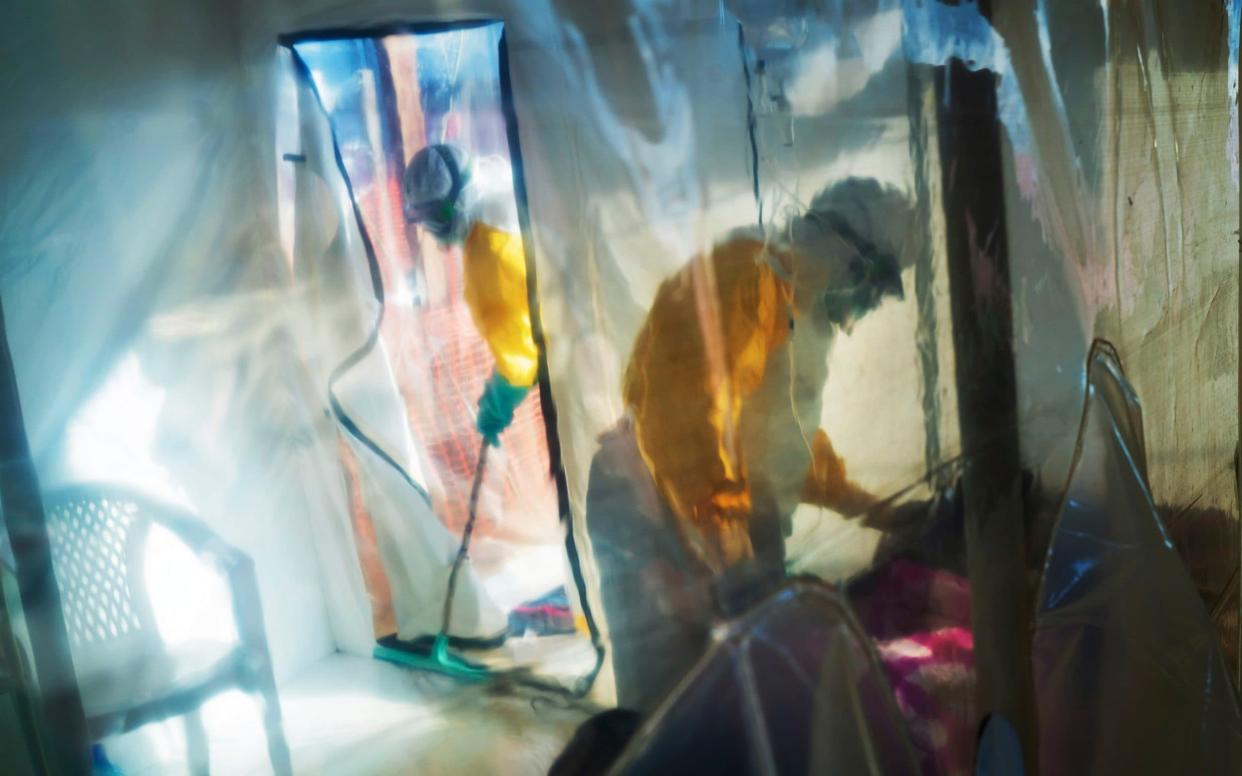Aid workers employed by Government banned from sexual relationships with victims of humanitarian disasters

Aid staff employed by the Government are to be banned from having sexual relationships with victims of humanitarian disasters, the Telegraph has learned.
Departments are reviewing guidance so that staff will face “gross misconduct” proceedings if they are found to be doing this in countries where the UK provides aid.
Previously official guidance said that sex with beneficiaries of humanitarian aid was only “strongly discouraged” despite noting that they involved “unequal power dynamics” that “undermined the credibility and integrity” of aid work abroad.
The Telegraph understands that the proposed change to the guidelines will only apply to those directly employed by UK Government departments, rather than charity workers on Government contracts or their contractors employed by the private sector.
However the Foreign, Commonwealth and Development Office stressed that funding agreements with charities and partners would be broken if evidence of sexual harassment, exploitation or abuse were found.
In a letter to the International Development Select Committee last week, Nigel Adams, Minister of State for Asia said that his department will develop policies to ban this.
The Telegraph understands that all other Government departments who employ aid staff will follow suit to review their guidance to bring it in line with the FCDO.

Sarah Champion, chair of the International Development Select Committee, told the Telegraph she was appalled that this had not been banned sooner.
“Whilst I am pleased the Government have now agreed to make sexual relations with beneficiaries a sackable offence, it should have been in place from the start, not an afterthought when they are forced into adding it,” she said.
“Aid beneficiaries are by their very nature the most vulnerable people on the planet. To say I was shocked when our inquiry found out Government staff were only discouraged, rather than banned, would be an understatement – I was appalled.
“If you work in the Aid sector, safeguarding should be at the heart of all your work. All charities need to make sex with beneficiaries gross misconduct with immediate effect.
“For too long the Aid sector seems to believe it didn’t have abusers within its ranks. Sadly, those that prey on the vulnerable go where the vulnerable are.
“They need to be rooted out and policies must be in place to make it very clear that sexual exploitation will not be tolerated in any form.”
Last year the Department for International Development (DfID) saw a large increase in the number of allegations of sexual exploitation, abuse of harassment against its staff.
26 cases were reported to the department in 2019-20, up from fewer than five the previous year.
Of these, 11 of the cases were upheld, resulting in fewer than five staff being dismissed and fewer than five being issued warning.

Stephanie Draper, CEO of Bond the UK network for organisations working in international development said: “Anyone involved in any humanitarian or development response, including donors, government officials, UN, NGOs and the private sector, must be robust and consistent when it comes to safeguarding and tackling sexual exploitation.
“Otherwise we risk perpetrators being able to hide in plain sight when exploiting the very people we are supposed to be helping.
A Foreign, Commonwealth & Development Office spokesperson said: “Safeguarding against sexual exploitation and abuse and sexual harassment is a top priority for the FCDO and we will not hesitate to take swift action if any staff member or any organisation we work with fails to uphold our strict standards.”
The UK currently spends around £15bn on its aid budget, with millions of pounds of investment coming from various departments across Whitehall.
In 2018 allegations emerged that Oxfam had covered up its investigation into its aid workers paying for sex while working in response to the 2010 Haiti earthquake.
Priti Patel, the now Home Secretary, said that during her time at the Department for International Development officials in the civil service had known about the abuse:
“People knew in DfId. I raised this directly with my department at the time. I have UN reports...there are 120 cases involving something like over 300 people. That was just the tip of the iceberg.”
“My former department did not raise this issue with me. I raised it with them through my own investigations and my own research. I challenged them - that is the job of ministers, to challenge your officials.”
One former-UN aid worker and whistleblower told the Telegraph: “Service providers should not be engaging in personal relationships (of any kind, including sexual) with the recipients of a service, irrespective of whether they are aid workers.
“This is because there is a conflict of interest. This applies in the UK and elsewhere. With aid workers, there is the additional power imbalance between the aid worker and the person they are helping.
“The recipient of aid, sometimes referred to as a beneficiary, may have or feel like they have little option but to go along with the sexual relationship in order to obtain the service.”
A Foreign, Commonwealth and Development Office spokesperson said: “Safeguarding against sexual exploitation and abuse and sexual harassment is a top priority for the FCDO and we will not hesitate to take swift action if any staff member or any organisation we work with fails to uphold our strict standards.”

 Yahoo News
Yahoo News 
